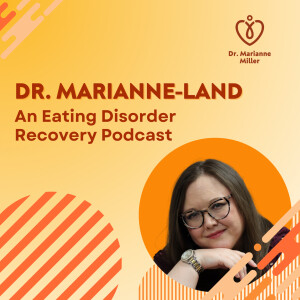

Developmental Trauma & Sex: Attachment Styles, Body Image, & Intimacy With Sex Therapist Dr. Nicole Van Ness, LMFT
In this candid conversation, couples and sex therapist Dr. Nicole Van Ness, LMFT joins Dr. Marianne to explore how developmental trauma shapes attachment styles, body image, sexual desire, and day-to-day intimacy. Dr. Nicole explains what developmental trauma is, how it differs from or overlaps with complex PTSD, and why chronic misattunement in childhood can echo through adult relationships, stress responses, and self-regulation. You will hear practical, compassionate strategies to rebuild safety, agency, and connection in your body and with your partner.
What You’ll Learn-
Developmental trauma 101: How repeated misattunement and lack of repair in childhood influence trust, safety, and the nervous system in adulthood.
-
Attachment and sex: How anxious and avoidant patterns can create desire pursuer–withdrawer cycles, sensitivity to rejection, and misaligned invitations for sex.
-
Body image and pleasure: Why self-loathing, dissociation, and low interoceptive awareness can shift sex from pleasure to performance and how to return to embodied enjoyment.
-
Masturbation as self-care: Ways self-pleasure can restore agency, support trauma recovery, and improve partnered intimacy through curiosity, consent, and pacing.
-
Desire discrepancy: How to reframe a declined invitation as information rather than personal rejection and how to stay connected when desire levels differ.
-
Pelvic and sexual pain: How chronic stress and hypervigilance can contribute to issues like vaginismus and pelvic floor tension and why relaxation and safety matter.
-
Neurodivergence and RSD: Tools for identifying rejection sensitive dysphoria in the moment and naming it with your partner to reduce spirals and repair faster.
-
Eroticism and aliveness: Gentle, stepwise practices that rebuild embodiment and pleasure, from sensing music and movement to sharing desire with a partner.
-
Trauma adaptations are creative survival strategies. They deserve respect while you learn new options that fit your current life.
-
Pleasure requires enough safety, agency, and self-worth to receive and enjoy it. These ingredients can be rebuilt.
-
Honest conversations about boundaries, pacing, and permission support intimacy more than duty or performance.
-
Small, consistent body-based practices help restore interoception, reduce hypervigilance, and widen your window of tolerance during sex and affection.
-
Name your nervous system state: Am I keyed up, shut down, or settled. Choose regulation first.
-
Solo exploration with care: Treat self-pleasure like self-nurture. Slow it down. Focus on sensation, comfort, and curiosity.
-
Low-stakes embodiment: Sway to a favorite song, notice breath, enjoy soft fabrics, or feel grass under your feet. Build from neutral to pleasant sensations.
-
Clear invitations and exits: Ask for what you want. Offer options. Affirm that no is welcome. Agree on easy ways to pause or change course.
-
Rejection reframe: A no is information about timing or capacity, not your worth. Validate disappointment and stay connected.
-
Developmental Model of Couples Therapy by Pete Pearson and Ellyn Bader
-
Complex PTSD conversations influenced by Bessel van der Kolk
-
Codependency concepts associated with Pia Mellody
-
Cultural touchpoints about sexuality education and agency referenced in feminist media history
Dr. Nicole Van Ness, LMFT is a couples and sex therapist who practices virtually in Texas, California, and Florida. She integrates attachment science, nervous system education, differentiation, and sexuality counseling to help clients cultivate secure intimacy and erotic connection. She works affirmatively with diverse relationship structures and identities.
Connect with Dr. Nicole:
connected-couples.com
Email: nicole@connected-couples.com
Phone: 858-352-6744
Related Episodes- Sex & Body Image (Part 1) with Sex Therapist Dr. Nicole Van Ness, LMFT on Apple & Spotify.
- Sex & Body Image (Part 2) with Sex Therapist Dr. Nicole Van Ness, LMFT on Apple & Spotify.
If you want trauma-informed, neurodivergent-affirming support for eating concerns, body image, or intimacy challenges, you can work with me in therapy in California, Texas, and Washington, D.C. Learn more and schedule a free consult at drmariannemiller.com.
Share the EpisodeIf this conversation helped you, rate and review the show, share it with a friend, and subscribe so you never miss an episode.
More Episodes
All Episodes>>You may also like
Create Your Podcast In Minutes
- Full-featured podcast site
- Unlimited storage and bandwidth
- Comprehensive podcast stats
- Distribute to Apple Podcasts, Spotify, and more
- Make money with your podcast












